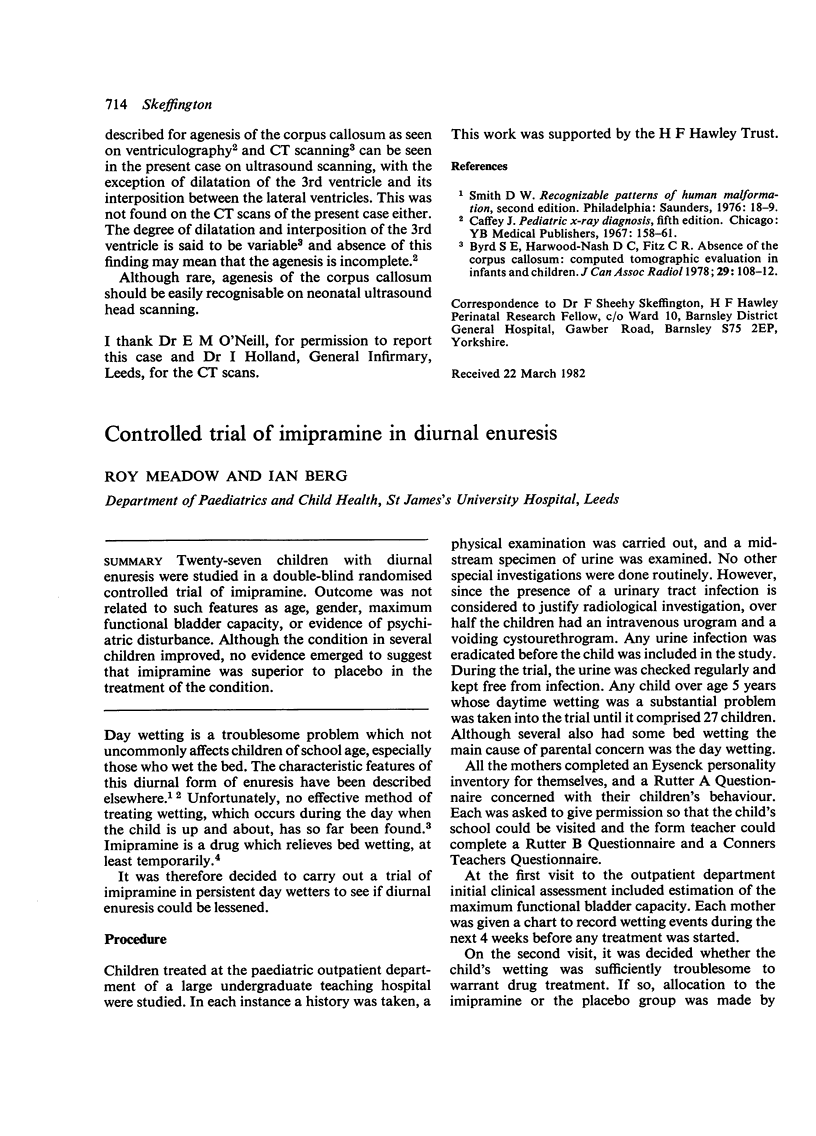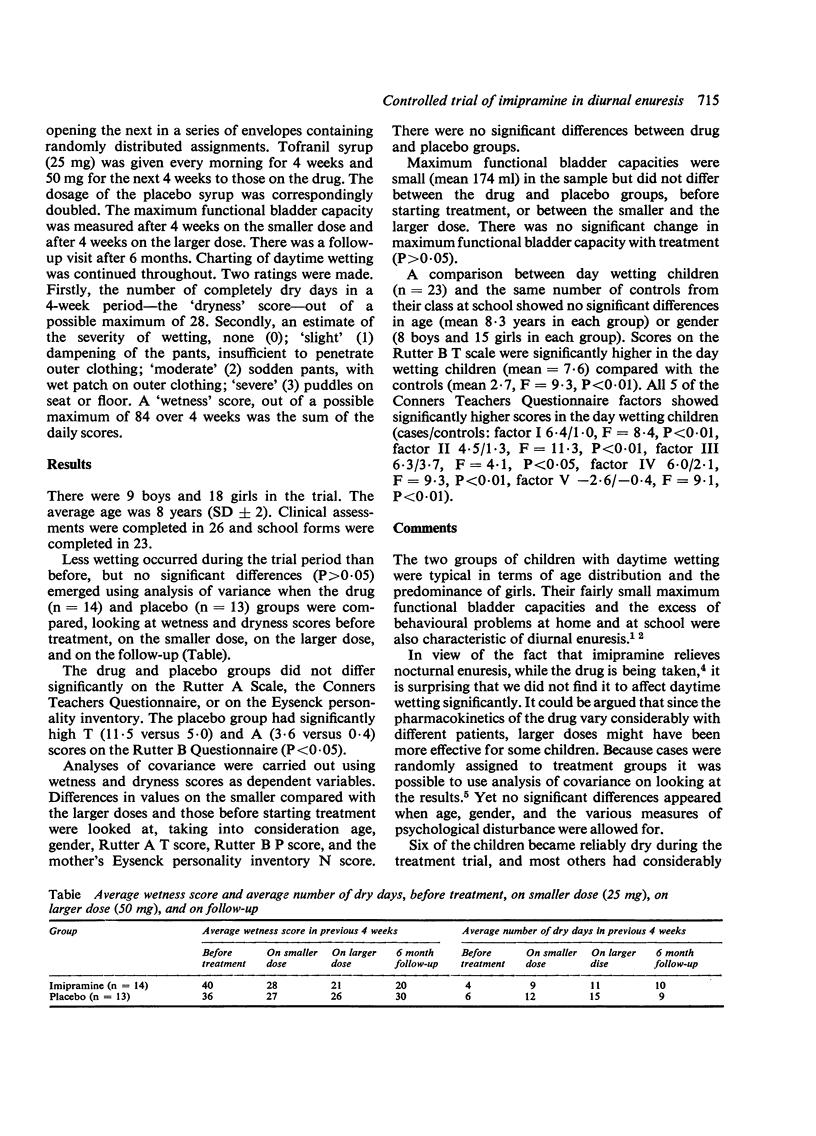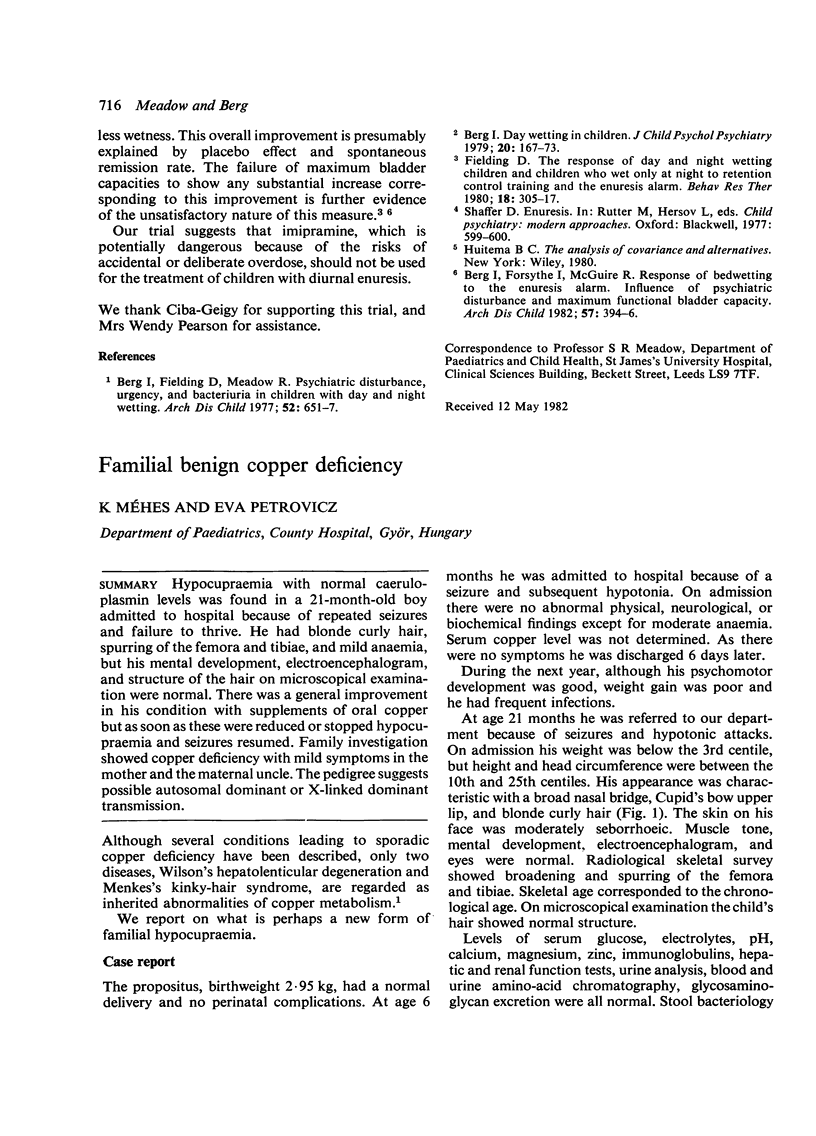Abstract
Twenty-seven children with diurnal enuresis were studied in a double-blind randomised controlled trial of imipramine. Outcome was not related to such features as age, gender, maximum functional bladder capacity, or evidence of psychiatric disturbance. Although the condition in several children improved, no evidence emerged to suggest that imipramine was superior to placebo in the treatment of the condition.
Full text
PDF


Selected References
These references are in PubMed. This may not be the complete list of references from this article.
- Berg I. Annotation day wetting children. J Child Psychol Psychiatry. 1979 Apr;20(2):167–173. doi: 10.1111/j.1469-7610.1979.tb00497.x. [DOI] [PubMed] [Google Scholar]
- Berg I., Fielding D., Meadow R. Psychiatric disturbance, urgency, and bacteriuria in children with day and night wetting. Arch Dis Child. 1977 Aug;52(8):651–657. doi: 10.1136/adc.52.8.651. [DOI] [PMC free article] [PubMed] [Google Scholar]
- Berg I., Forsythe I., McGuire R. Response of bedwetting to the enuresis alarm. Influence of psychiatric disturbance and maximum functional bladder capacity. Arch Dis Child. 1982 May;57(5):394–396. doi: 10.1136/adc.57.5.394. [DOI] [PMC free article] [PubMed] [Google Scholar]
- Fielding D. The response of day and night wetting children and children who wet only at night to retention control training and the enuresis alarm. Behav Res Ther. 1980;18(4):305–317. doi: 10.1016/0005-7967(80)90089-3. [DOI] [PubMed] [Google Scholar]


